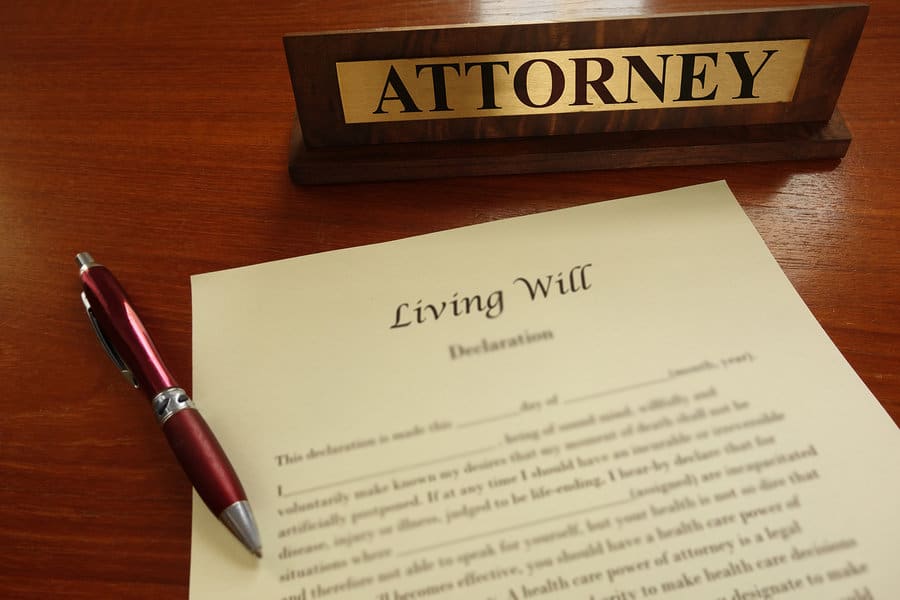Advance medical directives, also known as advance healthcare directives, began to be developed in the United States in the 1960s and are now a standard part of estate planning. These legal documents help lighten the burden on your loved ones with medical decisions, end-of-life health care decisions, and also potentially help avoid treatments that would preserve life at any cost. These documents speak for you when you are not able to speak for yourself. As part of your estate planning, you should speak with an attorney about what measures you can take now that will save your loved ones the stress and grief of having to make very important health care decisions on your behalf. Let’s look at some advanced medical directives.
Power of Attorney (POA)
A medical or health care power of attorney is a type of advance directive that names a person who you trust to make health care decisions on your behalf. These decisions range from consenting to surgery, choosing a treatment option, determining where you will live or go to rehab, and when you can no longer live on your own. Choosing the right person who will act in your stead is an important decision. It’s likely that he/she might have to make some judgment calls about your care. Be sure this is a trusted and trustworthy individual, who will honor your wishes, and advocate for you if there are disagreements about your care.
Organ and Tissue Donations
You may have made this decision and indicated that you are an organ donor on your driver’s license. You can expand on your wishes to be an organ donor in your Power of Attorney. You can include that you would like to be an organ and/or tissue donor for medical and dental research and/or for medical and dental education. You can specify what organs and/or tissue you wish to donate, or whether you want organs and/or tissue to go to family members in need first. Equally important, you can say that you do not want to be an organ and/or tissue donor for any purpose. It is a very good idea to let your loved ones also know your wishes in this area. Often, if you are in an end-of-life situation, you will remain on life-sustaining support temporarily in order complete the organ and/or tissue donation. To help your agent, and avoid any confusion, you should state that you acknowledge that this would be a temporary intervention.
Living Will
A living will is an advance directive that spells out the medical treatments you would and would not want to be used to keep you alive. It will also address areas like pain management. Some difficult issues you need to think about when determining your wishes are:
- Would you want treatment to extend life in any situation?
- Would you only want treatment if a cure is possible?
- What are your quality of life values? How important is it to be independent and self-sufficient, in order to make life worth living?
- Determine if you want to be resuscitated by cardiopulmonary resuscitation (CPR) or by a device that delivers an electric shock to stimulate the heart.
- If you require mechanical ventilation (a machine that takes over your breathing if you are unable to do so yourself), when and for how long would you want this assistance.
- Decide if and when and for how long you’d want to be fed intravenously through a tub in your stomach.
- Determine if you’ll require dialysis, (which is a process that removes waster from your blood and manages fluid levels in your kidneys) for how long would you want receive this treatment.
- Antibiotics or antiviral medications can be used to extend life. Would you want infections treated aggressively or would you rather let them run their course?
- Comfort and pain management options can include many interventions that could allow you to die at home, be fed ice chips to soothe dryness and avoid tests or treatments.
Do Not Resuscitate (DNR) and Do Not Intubate (DNI) Orders
Although these not technically included in a living will or power of attorney, you can make your wishes known to your doctors and loved ones.
Donating Your Body
This directive can also be stated in your power of attorney. Be sure to contact a local medical school, university or donation program for more information on how to register. It is very important to have this in place before something bad happens. Donating your body is not as easy as one may think.
Let Law Offices of Paula Hannah, PLC Help!
Thinking about end-of-life care is not a conversation that most of us look forward to having. However, when you make your wishes known to your loved ones, you can move forward with living your life to the fullest and having the peace of mind that you have made things easier for your loved ones. Let me help you put together advance directives that honor your wishes. Call today to set up an appointment.

